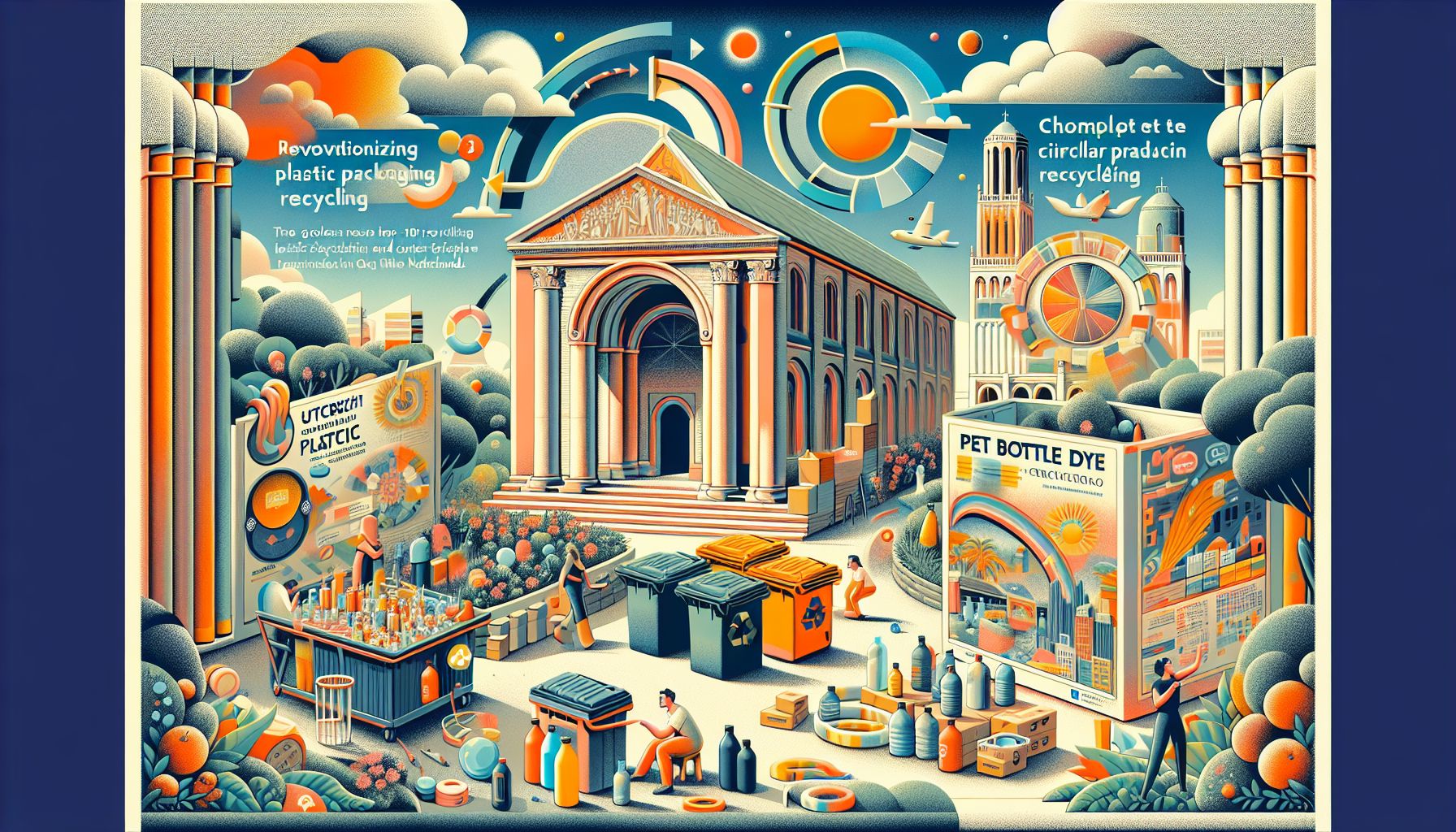Utrecht University Secures Funding for Groundbreaking Circular Plastics Research

Utrecht, Thursday, 11 July 2024.
Two projects at Utrecht University have received funding from the National Growth Fund program Circular Plastics NL. These initiatives aim to tackle key challenges in recycling plastic packaging and PET bottle dyes, contributing to the Netherlands’ goal of achieving 100% plastic recycling by 2030 and full circular production by 2050.
Addressing Recycling Bottlenecks
Utrecht University’s Inorganic Chemistry & Catalysis Group will spearhead two pivotal projects within the ‘Making plastics circular: technical innovations’ program. This initiative is part of the broader National Growth Fund program Circular Plastics NL. The Dutch government has allocated €6 million among ten projects, each designed to confront specific obstacles in plastic recycling processes. These efforts are crucial as the Netherlands strives to recycle 50% of all plastics by 2030 and achieve full circular production by 2050[1].
Innovative Approaches to Plastic Dye Recycling
One of the funded projects, led by Prof. Dr. Ir. B.M. Weckhuysen, focuses on the circular use of pigments in recycling plastics. The research aims to develop novel technologies to recover both inorganic and organic dyes from polyethylene terephthalate (PET) recycle streams. These recovered dyes will then be reused in the synthesis of recycled PET materials, ensuring their purity and stability. The project involves a consortium including CuRe Technology, Holland Colours, and Utrecht University[2].
Enhancing Plastic Waste Recycling
Dr. I. Vollmer leads the second project, which aims to improve the recycling of polyolefin plastics using catalytic extrusion. This technique seeks to lower the temperature required for chemical transformations, leveraging the mechanical forces within an extruder to drive chemical conversions. The consortium for this project includes Carboliq, Coperion, Ruhr University, Maastricht University, and Utrecht University. The objective is to obtain high-purity chemicals that can be reused to manufacture new plastics, thereby increasing the recycling rate and quality of recycled products[3].
The Broader Impact
These projects form part of a larger strategy to address the significant environmental challenges posed by plastic waste. Currently, only 15% of the one million tonnes of discarded plastics produced annually in the Netherlands are recycled at high quality[4]. By focusing on technical innovations, the National Growth Fund program Circular Plastics NL aims to close the recycling loop for existing plastics, offering sustainable growth opportunities for the Dutch economy and accelerating the transition to a circular plastics economy[5].
A Collaborative Effort
The success of these projects hinges on collaboration between academia, industry, and government. Utrecht University’s partnerships with various companies and institutions ensure a multidisciplinary approach, combining expertise in chemistry, engineering, and environmental science. Such collaborations are essential for developing scalable solutions that can be implemented globally, contributing to the reduction of plastic pollution and fostering a more sustainable future[6].
Bronnen
- sciencebusiness.net
- www.eea.europa.eu
- omnexus.specialchem.com
- pubs.acs.org
- www.maastrichtuniversity.nl
- plasticsmartcities.org

